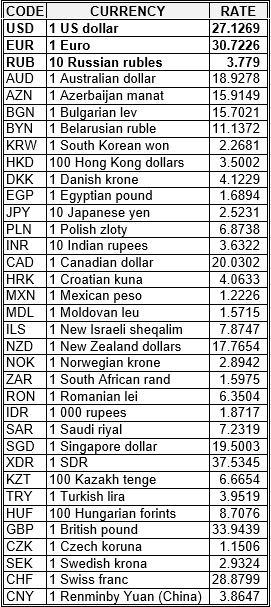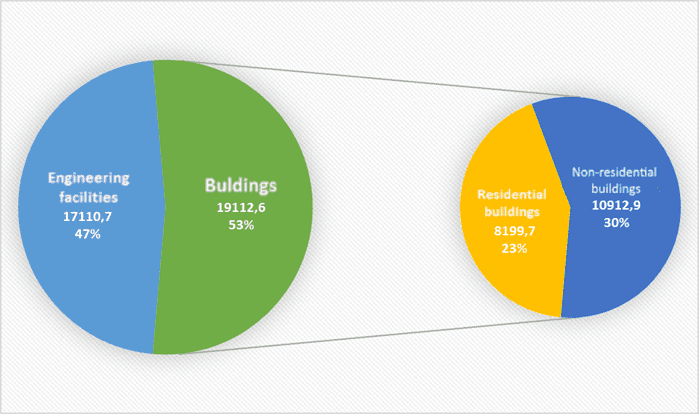
Тhe number of tourists who visited Odessa in June of this year returned to the pre-quarantine level, according to geo-analytics of the Vodafone Ukraine mobile communications operator/
The press service of the company reported that on Constitution Day tourists in Odesa were twice as much as on March 8. Most tourists came from Kyiv region. Residents of Odesa region were in second place, followed by Kherson, Zaporizhia and Dnipropetrovsk regions.
“Judging by the increase in Internet traffic and the number of 4G users, in general, domestic tourism in Ukrainian sea resorts in Odesa, Mykolaiv and Kherson regions has grown by 30% compared to the same weekend last year,” the operator said.
According to Vodafone Ukraine, coastal resort towns and villages of the Sea of Azov in Zaporizhia and Donetsk regions showed even greater dynamics.
Vodafone Ukraine said that the coastal villages of Donetsk region are among the new destinations with growing popularity among tourists: Bilosaraiska Kosa (177% up), Yalta (124% up) and Urzuf (101% up), which showed the highest traffic growth.
“The forecast of resort attendance based on their own data analytics allows the company’s engineers to provide sufficient network capacity – using stationary equipment and mobile towers – in hot spots, taking into account the organic growth of traffic,” Vodafone Ukraine said.

Ferrexpo plc, whose main assets are Ukrainian iron ore producers Poltava and Yeristovo mining and processing plants, raised iron ore pellet production 4.6% year-on-year in H1, 2020, to 5.598 million tonnes, the company said in a press release.
Output of pellets with 65% Fe-content grew 7.1% year-on-year, to 5.5 million tonnes while output 62% Fe fell 54.4%, to 98,000 tonnes.
Ferrexpo did not produce pellets from third-party feedstock.
Pellet production rose 5.4% quarter-on-quarter in Q2, 2020, to 2.873 million tonnes, including 2.848 million tonnes of 65% Fe, up 7.4%, and 24,700 tonnes of 62% Fe, down 66.3%.
The company’s facilities “continue to operate with minimal impact on operations to date, and the company continues to closely monitor its workforce,” Ferrexpo said in a COVID-19 update. “The infection rate in the local communities surrounding the company’s operations remains low,” it said.
The London-listed Ferrexpo plc owns 100% of Ferrexpo AG, which owns 100% of each of Poltava Mining and Yeristovo Mining and 99.9% of Belanovo Mining. Ferrexpo’s main customers are steelmakers in Austria, Germany, Japan, South Korea, Taiwan, China, Slovakia, the Czech Republic, Turkey, Vietnam and the United States. Pellet production grew 0.8% to 10.519 million tonnes on 2019.

The Irish low cost airline Ryanair (Dublin) has asked the passengers before a trip to confirm that they got acquainted with the restrictions introduced in the destination country. “During an online check-in, passengers are directed to the ‘Ryanair COVID-19 travel restrictions page’ where they must confirm that they are familiar with the existing restrictions before receiving a boarding pass,” Interfax-Ukraine was told in Ryanair on Tuesday.
Moreover, the airlines reported that before the trip the passengers were asked to fill and provide additional travel documents.Ryanair advises customers before flying to check the latest travel restrictions and requirements in a particular country.
“The 12 passengers of the Ryanair flight Kyiv-Athens (July 4) were denied entry to Athens in accordance with the current restrictions of the Greek government for non-EU citizens. Affected customers were rebooked for the next available flight to Kyiv,” the airlines said.
As reported, the group of 17 Ukrainians who were not allowed into Greece on Saturday, July 4, are to return to Ukraine on Tuesday, said Head of the Consular Service Department of the Foreign Ministry of Ukraine Serhiy Pohoreltsev.
National bank of Ukraine’s official rates as of 07/07/20

Source: National Bank of Ukraine
Volume of construction products produced by type in Jan-Apr of 2020 (mln uah)
